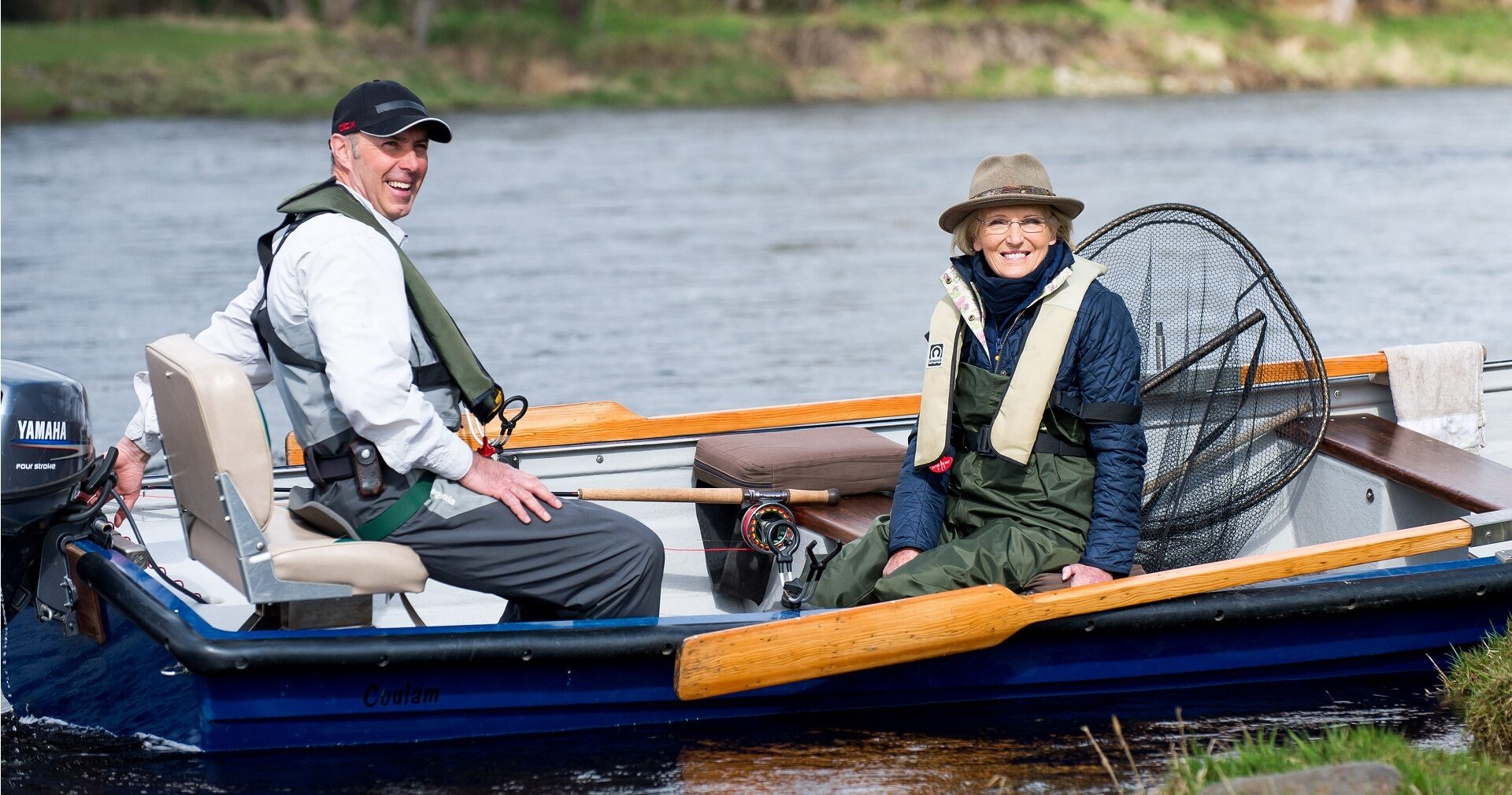
What would you do, if for just one day only, you were given an extra hour? Would you put that hour to good use? Would you use it to undertake a task that has been scolding your conscience for days? Or would you savour it by having an extra hour in bed, or devouring a few more chapters of your book? In the lifecycle of a simple day, an hour can seem inconsequential, lost amongst the other 23, and can often pass indiscriminately. After all, what can a person really achieve in just one hour? Some of us may be fortunate enough to have our 15 minutes of fame, but this is often fleeting, and the memory of the moment fades as unexpectedly as it came. But very few of us can lay claim to having created a legacy, one that would stand the test of time, in a mere matter of minutes. And yet, for one Perthshire woman, an extra hour was all she needed to enter the history books and become the holder of one of Britain’s longest records.
This year sees the 100th anniversary of Georgina Ballantine’s remarkable record for the largest rod-caught salmon in British waters. The salmon, which weighed 64lbs, was caught here in Perthshire, in the Glendelvine beat of the River Tay on October 7 1922 at 8.20pm. Before landing the giant salmon in the evening, Georgina had already enjoyed a bountiful days catch; hooking three fish weighing 25, 17 and 11lbs. But it was the decision to go out and fish again after tea, to use the extra hour that would mark the end of British Summertime, that would lead her to become one of Britain’s most famous female anglers. In her own words, requested by Mr Lyle, owner of the Glendelvine Estate, she describes her decision:
‘At tea-time we returned home with three salmon, and as the clock would go back one hour that night, and fishing days were nearing an end, we decided to continue till dusk’.
Georgina Ballantine was born in Caputh, a small hamlet on the banks of the River Tay, on 25 November 1889. Her father, James Ballantine was a registrar and a ghillie on the Glendelvine Estate, so fishing was already in her blood. Georgina spent much of the First World War working as a nurse in Perth, then later in London and France, where she was decorated with the Red Cross. But ill health was to play a part in her own life too. She suffered greatly with arthritis, which in later years spread to her limbs, culminating in the amputation of both her legs. By the time
Georgina was 32 years old, the arthritis had already found its way into her hands, the crippling nature of which, she had tried to keep hidden from the fishing fraternity. And yet remarkably, it was at this exact age, with hands so encumbered, that she landed her record-breaking salmon.
The day in question began like any other in early autumn; golden and glorious. She hadn’t expected to go fishing, but when a message arrived from Glendelvine explaining that the Laird was indisposed with a headache, her father asked her to join him. They were accompanied by Melvin, a local boatman, who Georgina described as being ‘blind of an eye’. Melvin did not continue with them into the evening. After teatime, he withdrew, leaving Georgina and her father to set out together in the fading light of October.
They ‘leisurely towed the boat to the top of the Boat pool, a favourite haunt where the stream is rapid and the current unbroken’. From here they began harling; a technique of angling, unique to the River Tay, in which a boat moves back and forth across the flowing river, with two or more lines cast from either end. The first few hurls were unfruitful, but then ‘as the last rays of the great crimson ball shone direct in the eyes of the fish there came a draw upon the line which I was plying, a sharp strike, and connection was established’. And so began the ‘Homeric battle’.
The salmon was hooked just above the Bargie Stone which lies at the neck of the Boat pool on the Glendelvine beat. Georgina had hoped to bring the fish in and land it on the Murthly side of the river, but the fish decided to make a break for freedom, suddenly hurtling downstream and taking vast amounts of fishing line with it. Her reel ‘screeched as it had never screeched before’.
Quickly the boat gave pursuit, blindly trailing behind the fish as it furiously headed 500 yards downstream. After which, it unexpectedly stalled 100 yards from the old Victoria Bridge, thus allowing Georgina to retrieve her slack line. As they were close to the north bank of the river at this point, they decided to try landing it once more. To their surprise, the fish unexpectedly rolled in towards the boat, offering them the opportunity to ‘gaff’ it; a retrieval technique involving a gaff, a long metal pole with a large hook on the end used to lift large fish out of the water. But the fish, having regained its bearings, moved further out into the river, and set off again, swimming headlong towards the north pier of the bridge. Having carefully cleared the bridge, they decided to step out of the boat and pursue the fish on foot, which remained 20 yards out from the riverbank.
After some distance, her father noted that the twilight was perceptibly waning and decided to get the boat. All the while Georgina held on to the fish, which was still intent on making its way downstream. Once they’d boarded the boat, they tried to manoeuvre it to the side of the fish, but this only seemed to propel the fish onwards. The next half hour passed. A battle of wills set against the soundtrack of the burbling Tay. As the day bled into night, the fish showed no sign of fatigue and certainly no desire to surrender. It was a waiting game like no other. Waiting expectantly in the
shadows of the darkened, overhanging trees, Georgina sensed that the fish was finally starting to capitulate:
‘Tiring of sulking, the fish began to jag, each jag running like an electric shock down my spine. What language can describe the phases we passed through in that hour; apprehension, hope, and deadly fear’.
After two hours of increasing exhaustion and determination, Georgina was able to reel the fish in at 8.20pm, a mile further upstream from where they had started the epic battle. She describes those last moments in her own words:
‘Though utterly exhausted, sheer determination kept me from giving up the rod, as tighter and tighter still came the order, and nearer and nearer came our quarry. By changing my seat to the bow of the boat, and keeping the rod in an upright position, father was enabled to feel with gaff the knot at the junction of line and cast (3 ¾ yards), the stroke was delivered, and a wriggling monster was heaved over the seat into the floor of the boat, vigorously flapping his tail’.
News of Georgina’s remarkable catch was quick to spread. The following day, the Perthshire Advertiser ran with the headlines: ‘Monster Salmon Caught in the Tay’ and ‘Caputh Lady’s Tussle’. But it would be a few days more before Georgina would witness for herself the public response to her magnificent catch.
The following week, Georgina visited P D Malloch’s fishing tackle shop in Perth, where on display in the window, was the impressive salmon. A crowd had gathered, all hoping toget a glimpse. Shortly after, a cast was taken of the fish, before it was taken to the Royal Perth Infirmary, where it was prepared and served to the patients convalescing there. Her catch soon spread further as she became the topic of conversation in private gentleman’s clubs across Britain. Dinners were hosted in her honour and in 1923, Milwards, a famous fishing tackle company, presented her with a special fly brooch. However, because of her sex, Georgina would have to observe the male-dominated angling fraternity from the periphery as gentleman only clubs forbade her from becoming a member.
Fishing on the River Tay, is an integral part of life in the Mansfield family today. The Slip Gallery in the Palace displays photos of family members proudly holding aloft their own maiden catches.
In 2017, Mary Berry, perhaps Britain’s most loved and renowned cook, came to visit Scone Palace for a television series called Mary Berry’s Country House Secrets. During the 10-day filming schedule, Mary joined Lady Mansfield in preparing two Scottish cuisine classics; Venison Wellington and Cock-a-leekie soup in the old kitchens. She alsolearned how to dance Scottish reels with the help of the family. But to fully experience life at Scone Palace, she had to take her turn fishing on the Tay, which she did with Viscount Stormont at her side. After all, the River Tay is renowned for its fishing throughout the world, with anglers traversing great distances to try and repeat Georgina’s great catch. Although, the likelihood today of a salmon reaching that size is negligible. But that’s not why most anglers dedicate themselves to the sport. Most would agree that the potential for a catch plays second fiddle to the experience itself. It’s about the uncomplicated, undemanding moments of man; or in this famous case, woman, alone in nature. I can think of no better words with which to end this blog than with those of Georgina herself:
‘To some, the uncertainty of fishing constitutes its chief attraction: to others, the fascination lies in the solitude of the surroundings, the fragrance and beauty of the woods, the songs of the birds, and the enchantment of running water.’
Other News
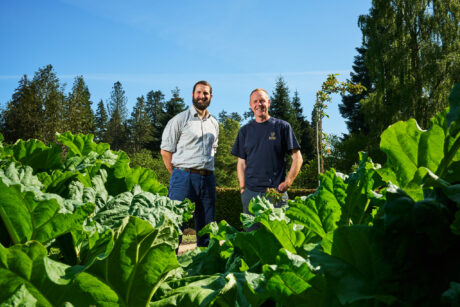
Garden Lovers Invited to Vote in UK First at Scone Palace Garden Fair
14th May 2025

Top Five Must Do Activities at Scone Palace Garden Fair
13th May 2025
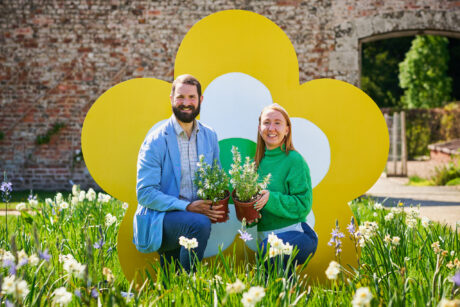
Dobbies Garden Centres Joins the Scone Palace Garden Fair
12th May 2025

The Crowning Place of Scottish Kings
04th May 2023
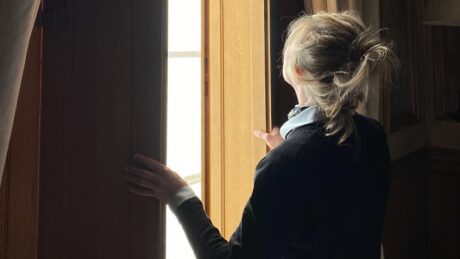
The Palace Awaits
29th March 2023

Snowdrop Festival
26th January 2023

Man's Best Friend
01st September 2022

British Cut Flowers Week & The Garden Fair
05th July 2022
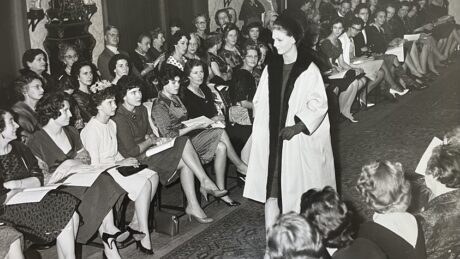
Scotland, Scone and Fashion
01st June 2022
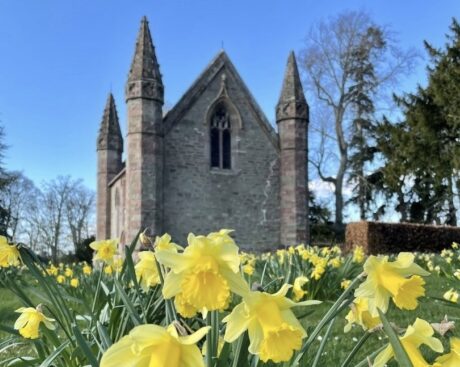
The Celebration of Easter
19th April 2022
